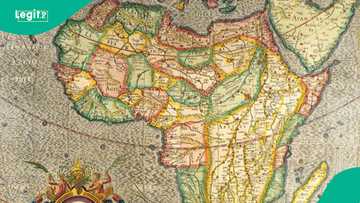Nigeria Gets New Position as UN Releases List of Most Industrialised Countries in Africa, World
- The United Nations has ranked Nigeria as the eighth most industrialised country in Africa and 98th globally
- The new ranking, which was amplified by the Africa Policy Institute, reflects Nigeria’s over-reliance on oil
- Experts have asked the country to pursue diversification and add value to its oil production via refining and industrial output
Legit.ng’s Pascal Oparada has reported on tech, energy, stocks, investment and the economy for over a decade.
The United Nations has released a new global ranking of industrialised nations, placing Nigeria as the eighth most industrialised country in Africa and the 98th worldwide.
The announcement was shared at the ongoing Nigeria Economic Summit in Abuja, where the Nigeria Economic Summit Group (NESG) highlighted both the progress and challenges facing the country’s industrial sector.

Source: Facebook
Vanguard reports that the report underscores Nigeria’s potential as Africa’s largest economy by population and market size, but it also reveals how far the country still lags in industrial competitiveness compared to leading African nations like South Africa and Egypt.
Nigeria’s industrial struggles, missed opportunities
According to industrial policy expert Kelvin Emmanuel, Nigeria’s performance exposes deep-rooted issues in its economic structure.
He noted that Nigeria’s manufacturing value per person stands at just $216, far below South Africa’s $645 and Egypt’s $524.
Emmanuel said Nigeria’s reliance on crude oil exports has stifled industrial growth.
Instead of developing robust industries around oil and gas, Nigeria has maintained a system of exporting raw resources without adding value through refining and manufacturing.
He called for urgent implementation of the Petroleum Industry Act (PIA) and alignment with Africa’s Agenda 2063, stressing that reforms must prioritise competitiveness in oil and gas while also encouraging other sectors.
Calls for diversification beyond oil
Experts at the Summit emphasised that Nigeria stands at a turning point. Laura Ani, a legal expert and co-lead on Mining at the NESG Industrial Policy Commission, urged the government to stop treating oil as the sole driver of revenue.
She argued that the future of Nigeria’s industrialisation lies in diversification, especially into agriculture, solid minerals, and technology.
Ani noted that oil remains volatile and cannot sustain long-term development.
The October 2024 Africa Policy Institute Report also reinforced these views, noting that Nigeria’s industrial growth remains overly dependent on oil exports, even though the country has vast untapped potential in other areas.
Global ranking: A wake-up call
Nigeria’s 98th position on the UN Competitive Industrial Performance Index may appear modest, but analysts believe it represents an opportunity.
While the ranking places Nigeria in the global industrialisation league, it also highlights how much more must be done to catch up with its peers.
Experts argue that with consistent reforms, investment in infrastructure, and policies that encourage manufacturing and innovation, Nigeria could move significantly up the global ladder.
The United Nations Industrial Development Organisation (UNIDO) tracks Africa’s industrialisation progress using its Competitive Industrial Performance Index (CIP).
10 most industrialised African countries
Based on the latest report, these are the top 10 most industrialised countries in Africa:
- South Africa: Africa’s leading industrial hub with strong automotive, mining, and manufacturing sectors.
- Egypt: A continental leader in textiles, construction, and energy.
- Morocco: Known for its growing automotive and aerospace industries.
- Tunisia: Competitive in electronics, textiles, and manufacturing exports.
- Kenya: East Africa’s most industrialised economy with agriculture-driven processing industries.
- Ethiopia: Rising as a manufacturing base for textiles and leather.
- Ghana: Strong in cocoa processing, mining, and growing tech hubs.
- Nigeria: Africa’s biggest population, but ranked 8th due to oil dependence and weak manufacturing.
- Tanzania: Expanding in agro-processing and mining industries.
- Senegal: Emerging in cement production, fisheries, and energy development.
This ranking shows that while Nigeria remains in the top 10 on the continent, it is still trailing behind smaller economies that have made deliberate investments in industrialisation.
The road ahead for Nigeria
Nigeria’s inclusion in the UN industrialisation list shows progress, but experts say it should serve as a wake-up call.

Source: Twitter
To secure a stronger position both in Africa and globally, Nigeria must reduce dependence on oil, strengthen manufacturing, and expand its industrial base into new frontiers.
For Africa’s largest economy, the challenge is clear: diversify or risk being left behind in the global race for industrial power.
10 African countries with better electricity than Nigeria
A previous report by Legit.ng disclosed that electricity access is a cornerstone of economic development, public health, and overall quality of life.
While many parts of Africa still grapple with significant energy deficits, many nations are making impressive strides toward universal electricity access.
Their success offers valuable lessons, particularly for countries like Nigeria, which, despite its vast resources, faced persistent challenges in providing reliable power to its citizens.
Proofreading by Kola Muhammed, copy editor at Legit.ng.
Source: Legit.ng




